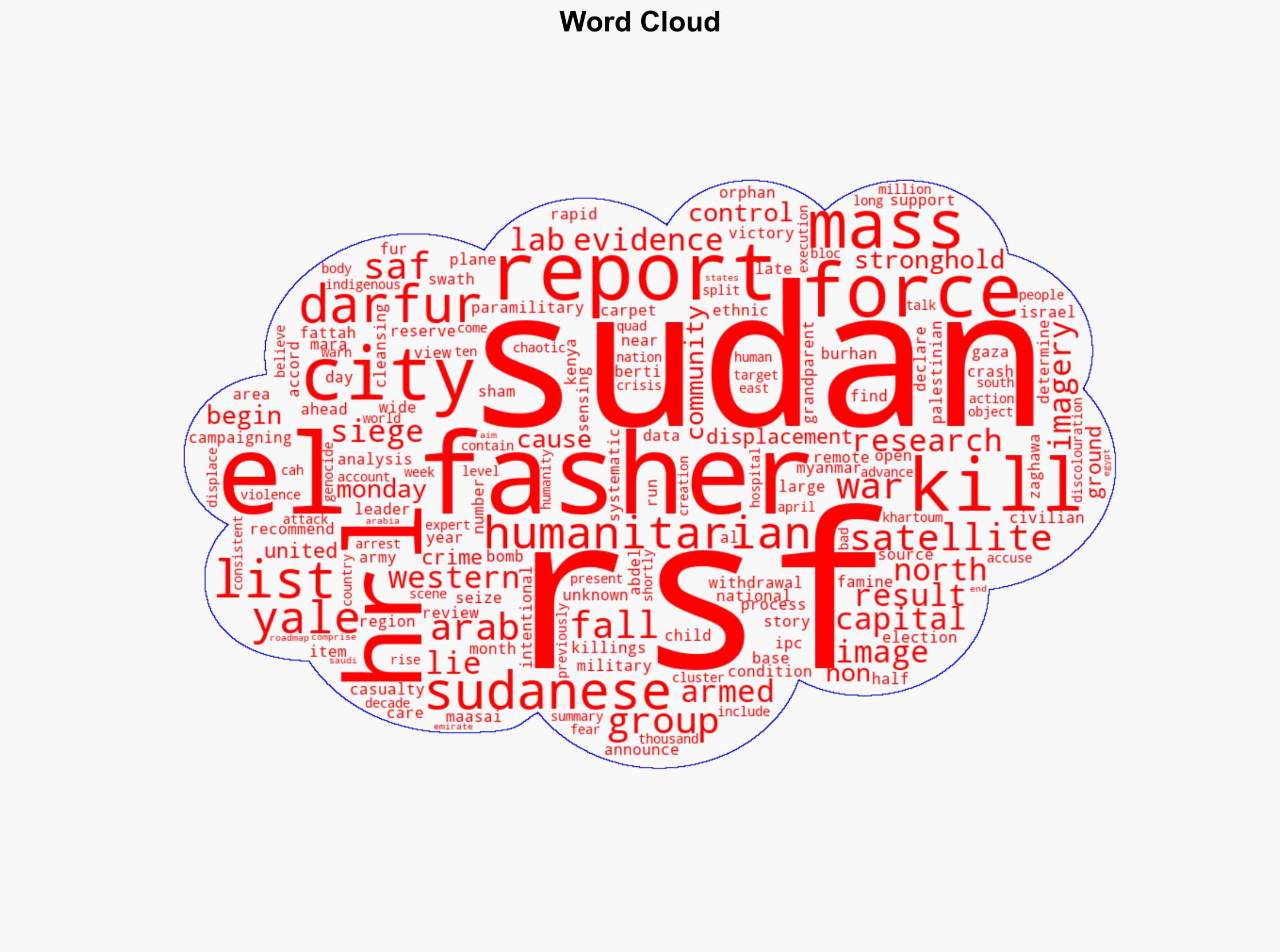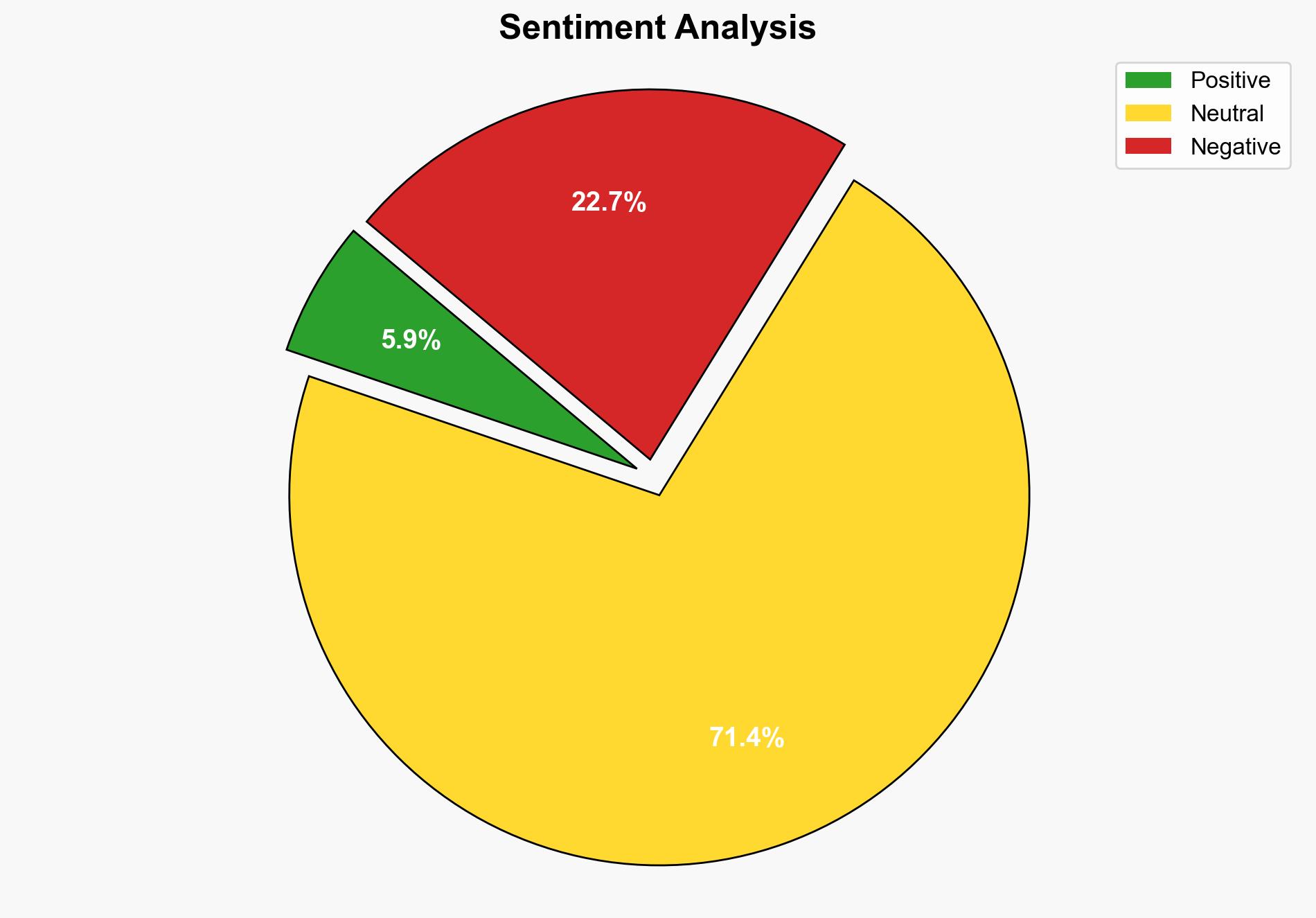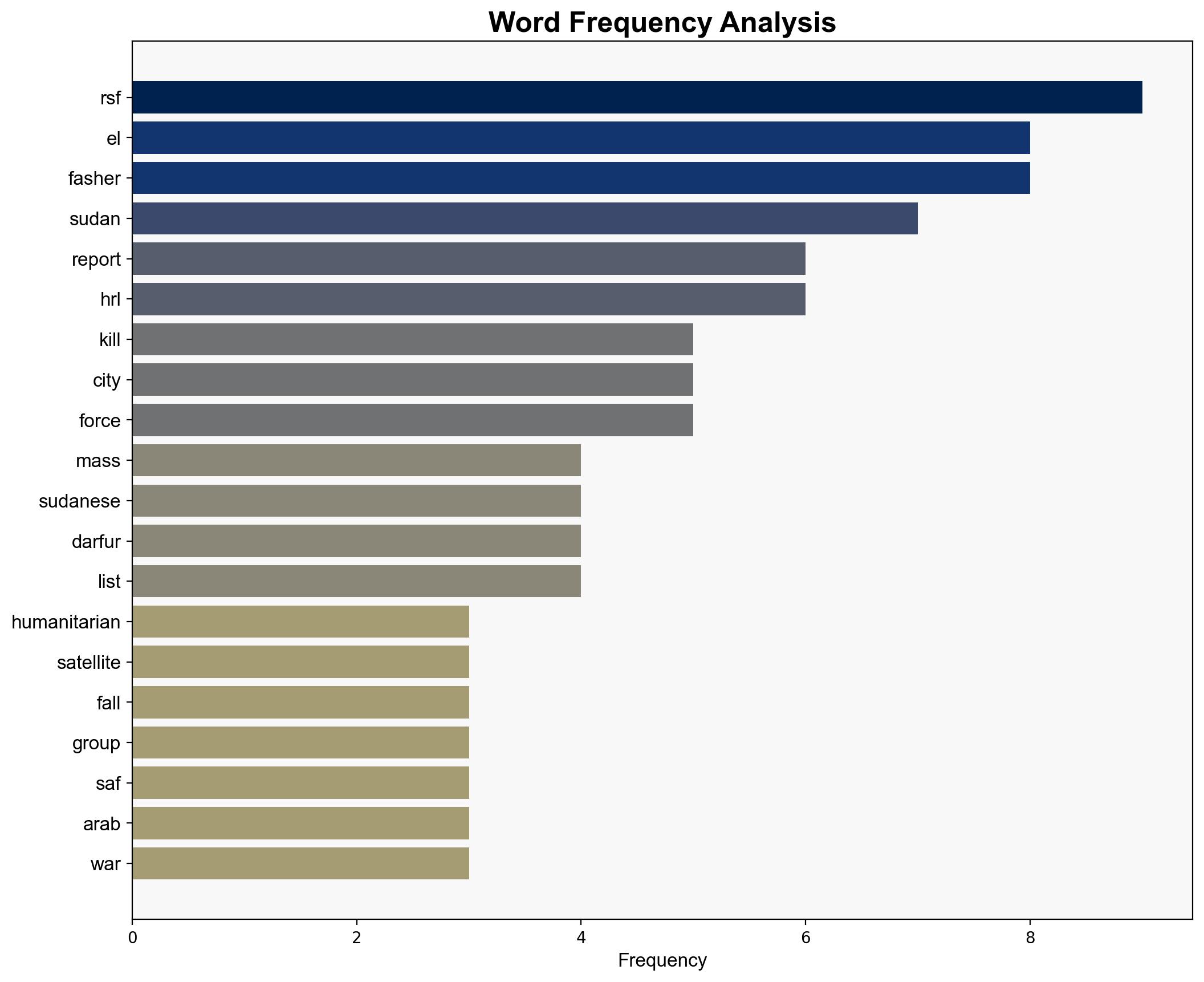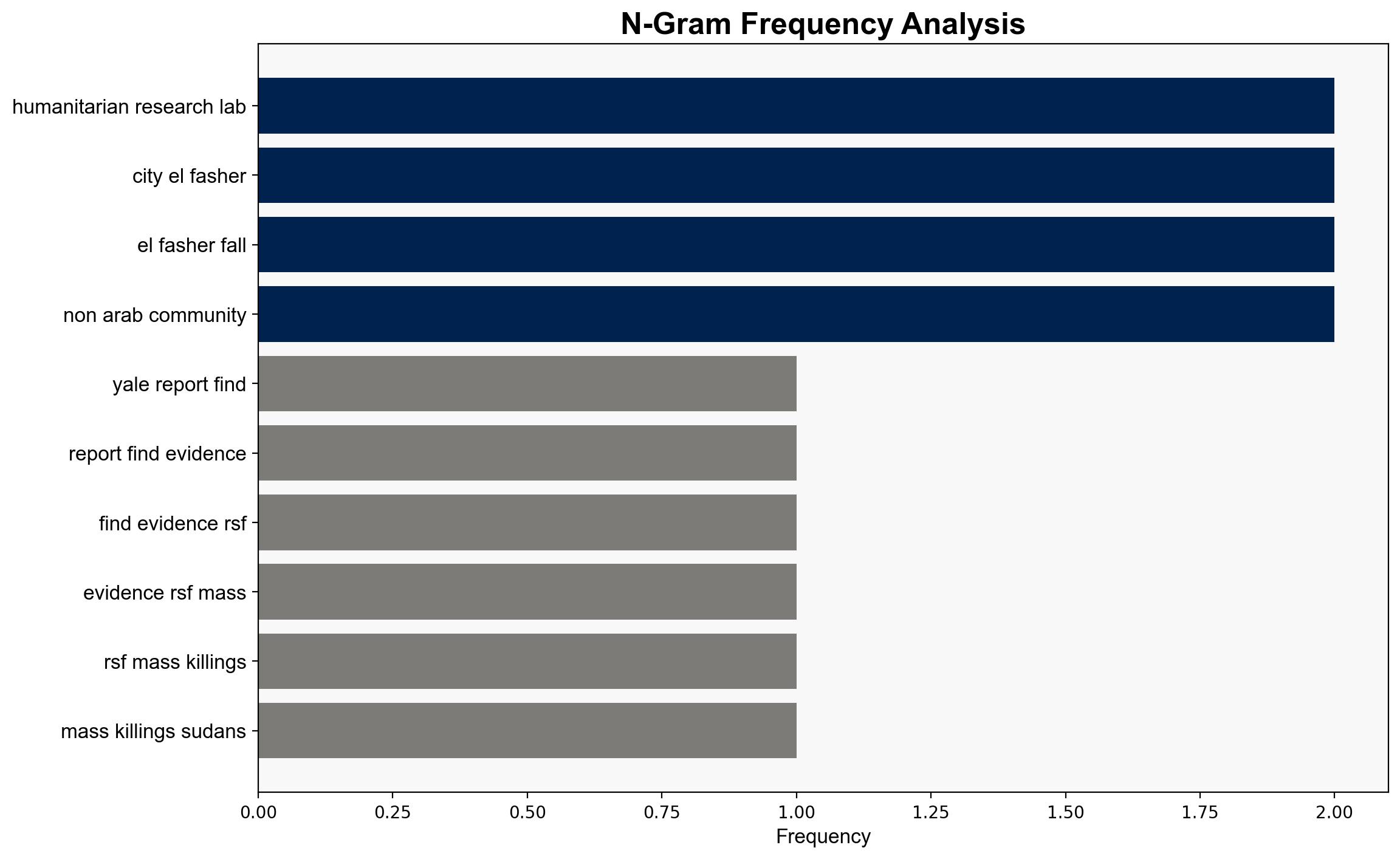Yale report finds evidence of RSF mass killings in Sudans el-Fasher – Al Jazeera English
Published on: 2025-10-28
Intelligence Report: Yale report finds evidence of RSF mass killings in Sudans el-Fasher – Al Jazeera English
1. BLUF (Bottom Line Up Front)
The most supported hypothesis is that the Rapid Support Forces (RSF) are responsible for mass killings and ethnic cleansing in El Fasher, Sudan. This is based on satellite imagery and reports from Yale’s Humanitarian Research Lab. Confidence in this assessment is moderate due to potential biases and the complexity of the conflict. Recommended action includes increased international monitoring and diplomatic pressure on involved parties to prevent further humanitarian crises.
2. Competing Hypotheses
1. **Hypothesis A**: The RSF is conducting systematic mass killings and ethnic cleansing in El Fasher, as evidenced by satellite imagery and reports from Yale’s Humanitarian Research Lab.
2. **Hypothesis B**: The reported mass killings and ethnic cleansing are exaggerated or misrepresented, possibly due to misinformation or propaganda from conflicting parties.
3. Key Assumptions and Red Flags
– **Assumptions**:
– Hypothesis A assumes the accuracy and reliability of satellite imagery and the objectivity of Yale’s Humanitarian Research Lab.
– Hypothesis B assumes the possibility of misinformation or biased reporting due to the chaotic nature of conflict zones.
– **Red Flags**:
– The potential for cognitive bias in interpreting satellite imagery.
– Lack of on-the-ground verification due to security constraints.
– Possible manipulation of information by involved parties to gain international sympathy or support.
4. Implications and Strategic Risks
– **Patterns**: Continued violence in Darfur could lead to further destabilization of the region, exacerbating the humanitarian crisis.
– **Cascading Threats**: Potential for increased refugee flows into neighboring countries, straining regional resources.
– **Escalation Scenarios**: If unchecked, the conflict may escalate into broader regional instability, drawing in external actors.
– **Dimensions**: Geopolitical tensions may rise as international actors take sides, potentially impacting global diplomatic relations.
5. Recommendations and Outlook
- Enhance international monitoring through satellite and on-the-ground verification to ensure accurate reporting.
- Engage in diplomatic efforts to mediate between conflicting parties and promote peace talks.
- Scenario Projections:
- Best: Successful mediation leads to a ceasefire and humanitarian aid access.
- Worst: Escalation of violence leads to regional conflict and international intervention.
- Most Likely: Continued sporadic violence with intermittent international diplomatic efforts.
6. Key Individuals and Entities
– Abdel Fattah al-Burhan
– Rapid Support Forces (RSF)
– Sudanese Armed Forces (SAF)
– Yale’s Humanitarian Research Lab
7. Thematic Tags
national security threats, humanitarian crisis, regional conflict, geopolitical tensions





